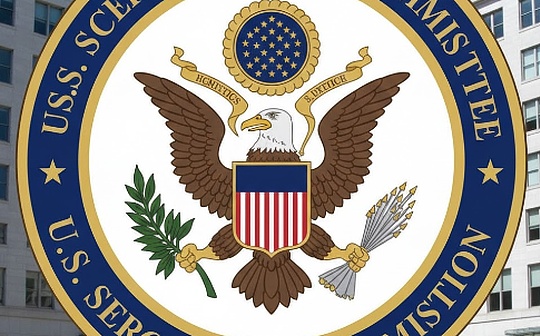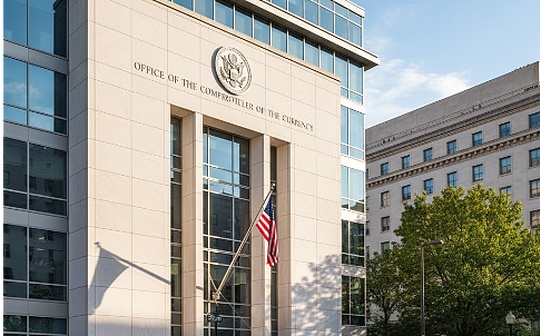
Source: TAXDAO
Cryptocurrencies are becoming the focus of media attention and the crackdown target of the US Securities and Exchange Commission.Due to the concerns of continuous fraud and market manipulation in the global currency market worth more than $ 2 trillion, the US Securities and Exchange Commission and other regulatory agencies try to use existing regulations to combat cryptocurrency companies to protect investors.This pushed new problems and disputes to the US court. The judicial department was forced to solve the new problems by explaining the old regulations, thereby facing the gap between the supervisionEssenceIt is inevitable that inconsistent explanations and applications have brought uncertain prospects to cryptocurrency companies and legal practitioners.
1. What is the current regulatory environment of the American cryptocurrency industry?
Despite the popularity of cryptocurrencies, the US Congress has not yet introduced any legislation specifically for cryptocurrencies.Laws and regulations for designing traditional financial tools are not easy to apply to cryptocurrencies, but regulators and courts have to apply these inappropriate rules to encryption tools and platforms.First of all, it is unclear how cryptocurrencies should be classified, so it is unclear which regulations are applicable to companies in the industry.In the milestone SHAVERS case in the Eastern District Court of Texas in 2014, the traditional HOWEY test (derive from the Supreme Court case of 1946) was applied to cryptocurrencies (In this case, Bitcoin tokens) are classified as “securities”, so they are supervised by SEC.However, in the case of the US Commodity Futures Trading Council’s subsequent trial -2015 cases of Coinflip Inc. -cryptocurrencies were classified as products in the “Commodity Trading Law”.The classification of digital assets will also affect which regulatory agencies have jurisdiction over cryptocurrency issues.Classified as securities put cryptocurrencies in the jurisdiction of the SEC, but classified as a commodity to give CFTC supervision rights.Other institutions may also have jurisdiction -the accounting supervision committee of the listed company, the National Taxation Bureau, the financial criminal law enforcement network or the US Department of Justice and the state authorities.The multiple nature of regulators will only increase the chaos and unpredictability of the industry.Many companies operating in the encryption industry are private companies, so they are not applied to more stringent rules and reporting requirements for listed companies.Private companies do not need to provide audited financial statements or submit reports to the US Securities and Exchange Commission.Some cryptocurrency companies have released audited financial data, including the reserve certification report, but the strictness of such audits has been questioned.As we all know, before the failure, the FTX passed the audit of one but two accounting firms.Since then, the US Securities and Exchange Commission has put forward hundreds of allegations against the independence of auditors on one of the audit companies.
2. The active enforcement of SEC is pushing the cryptocurrency problem to the bankruptcy court
The reinforcement of review and law enforcement has created an uncertain and risky environment for cryptocurrency companies. At the same time, major bankruptcy applications have also appeared in the industry.In May 2022, the SEC announced that the number of personnel in the cryptocurrency law enforcement department nearly doubled and renamed it “crypto assets and network departments” to reflect its increasing attention to cryptocurrencies.Since then, in 2023 alone, it launched 26 law enforcement operations on companies in the cryptocurrency field, including the Actions taken by GENESIS Global Capital LLC and Gemini Trust Company LLC in January 2023, and accused it of the Gemini Earn plan.Unregistered securities issuance.The SEC action is to overcome the last straw of Genesis. The company applied for bankruptcy one week later, and the debt owner exceeded more than $ 3.4 billion.Genesis has recently reached a settlement with SEC for $ 21 million.The US Securities and Exchange Commission subsequently sued Bittrex and its co -founder William Shihara, accusing them of unregistered national stock exchanges, brokers and liquidation agencies.Just three weeks later, the company applied for bankruptcy with the Tellawa bankruptcy court.Bittrex achieved reconciliation with $ 24 million.In addition, SEC has taken action against many other well -known companies such as Kraken, Binance and Coinbase Global Inc.Because of the concerns of poor asset management and may have illegal acts, the Pasar Securities Committee of the FTX is frozen from the company’s assets, suspended its registration, and applied for temporary liquidation.In just 10 days, the company closed down.There are no signs that the action of strengthening the supervision of the cryptocurrency market will be weakened.After the FTX closed, the US Securities and Exchange Commission was criticized for not taking more measures to protect American investors. Since then, it has begun to actively investigate other cryptocurrency companies and executives.
While announced Gemini and Genesis operations, SEC Chairman Gary Gensler said:
Today’s allegations are based on the previous actions, aiming to clarify the market and invest in the public that the cryptocurrency lending platform and other intermediary agencies must abide by the securities law that we test after time.You can protect investors the best.It promotes market trust.This is a bargaining law (action).
Legislators are also promoting this process.A number of legislative proposals related to cryptocurrency supervision are being reviewed in the US House of Representatives and the Senate, and two -party politicians also generally support strengthening supervision.
3. The bankruptcy court is formulating cryptocurrency law
As the cryptocurrency issue was submitted to the US bankruptcy court (usually in Travana), the judiciary was forced to fill the regulatory gap and became the arbitrs and legislators in the field.Seemingly inconsistent judgments and interpretations of conflict between inappropriate regulations will only bring more problems to practitioners and stakeholders in the cryptocurrency industry.
3.1 How to classify encrypted assets?
At present, the classification of cryptocurrency assets is not clear.The Shavers case applies the HowEy test to determine that the Bitcoin tokens are investment contracts, so they are also securities.By ruling Bitcoin token as securities, they are included in the SEC’s regulatory framework.However, in the subsequent July 2023, the ruling in the SEC Court of New York District Court in the SEC claiming the Ripple Labs Inc. case caused the SEC to crack down.EssenceThe courts in the Ripple case did not accept the US Securities and Exchange Commission’s position on all cryptocurrency assets. Instead, they applied the HOWEY test to each type of transaction and considered the overall situation of each transaction.The court ruled that only one of the four types of Ripple trading was in line with the HowEy inspection standards that met the securities.Therefore, it is difficult for practitioners to predict how the courts will evaluate and classify crypto assets in future cases, especially considering the subtle differences and rapid development of the technology.
3.2 How to valuation of cryptocurrencies?
In its short history, the value of cryptocurrencies has been proven to be extremely unstable.
The US bankruptcy law does not specify the valuation time of encrypted assets, so the courts are determined by itself.Some choose to apply for the date of application, some choose the date of the debtor to transfer the assets, and the date of the choice of compensation operations.In November 2022, when FTX applied for bankruptcy, the valuation of Bitcoin was $ 16,871.As of March 13, Bitcoin’s valuation has increased to $ 73083.This volatility coupled with the so -called cryptocurrency and the surge in litigation and bankruptcy after the cold winter, making valuation decisions very important.In the FTX bankruptcy case, the U.S. Delawa Bankruptcy Court ruled that FTX’s digital assets (including Bitcoin and other digital currencies) should be valued at the price of November 2022, which caused the cryptocurrency since the company’s application for bankruptcyFTX customers suffer from major losses.Outside the bankruptcy field, the court was forced to valuation of encrypted assets to determine damage compensation, debt, and even inheritance decisions.Crypto asset valuations also affect the strategy or feasibility of litigation or arbitration in the field.It is expected that as the company, creditors, customers, and investors continue to compete for the most favorable valuations, laws in this field will continue to develop like technology.
3.3 automatic suspension measures will protect assets from being confiscated by civil or criminals?
When submitting an application for bankruptcy, Article 541 of the Bankruptcy Law created a bankruptcy property composed of all the assets of the debtor, and forced the implementation of automatic suspension measures to protect these assets and prevent lawsuits against the debtor or its bankruptcy property during the bankruptcy.The limited exception of automatic suspension includes criminal activities and government law enforcement or supervision power.However, in the many high -profile encryption cases, the Ministry of Justice seized the encrypted assets according to its criminal and civil confiscation power, which caused whether the ownership of the encrypted assets belonged to the debtor or user, and whether the encrypted assets could be legally detained during the automatic suspension period of application.And who is the criminal court or the bankruptcy court who has jurisdiction over these issues.In the Blockfi case, the Ministry of Justice seized the company’s assets based on criminal and civilian non -collectives, because the reason is that it is unsuitable automatically.In the FTX case, the Ministry of Justice seized about $ 150 million in cryptocurrencies and cash deposits and other assets of the FTX bank account after filed a criminal prosecution against Bankman-Fric.Cryptocurrency companies cannot think that automatic suspension will protect them during bankruptcy, and cryptocurrency customers must be vigilant about the risks brought by holding cryptocarbean assets in unpredictable industries.
3.4 Is the anonymous performance of creditors survived in cryptocurrencies bankruptcy?
According to Article 107 (A) of the Bankruptcy Law, all the documents submitted during bankruptcy are public records and can be checked, but anonymous is the basic principle of cryptocurrency transactions.The bankruptcy court assumes an unpopular task of adjusting the conflict of conflict, but unfortunately, the bankruptcy court has not reached an agreement on this issue.Multiple court judgments, such as the U.S. Delawa Bankruptcy Court’s judgment on FTX transactions last year, protects the anonymity of cryptocurrency customers in bankruptcy.However, in some places, in some places, in the case of the CELSIUS Network in New York in 2022, the court believes that the customer address, phone number and email address should be kept confidential, but the customer’s name should be disclosed.The court believes that according to the “Bankruptcy Law”, the name does not constitute commercial or personal identity information and does not meet the exception of the policy disclosed in the bankruptcy case.Cryptocurrency companies and customers must prepare for the unpredictability of the industry again.
4. Conclusion
Some people describe the cryptocurrency industry as “wild west”.The radical position of the US Securities and Exchange Commission reflects people’s awareness of risk awareness of this emerging industry.However, the increase in chaos, inconsistent court rulings and bankruptcy applications that have arisen have highlighted the urgent need to establish a comprehensive regulatory framework.Obviously, the coordination of regulators, legislators, and industry participants is vital to the development of the cultivation of the cryptocurrency industry, so that the industry can surpass the current wild western image and develop into the forefront of the financial world with good supervision and prosperity.







